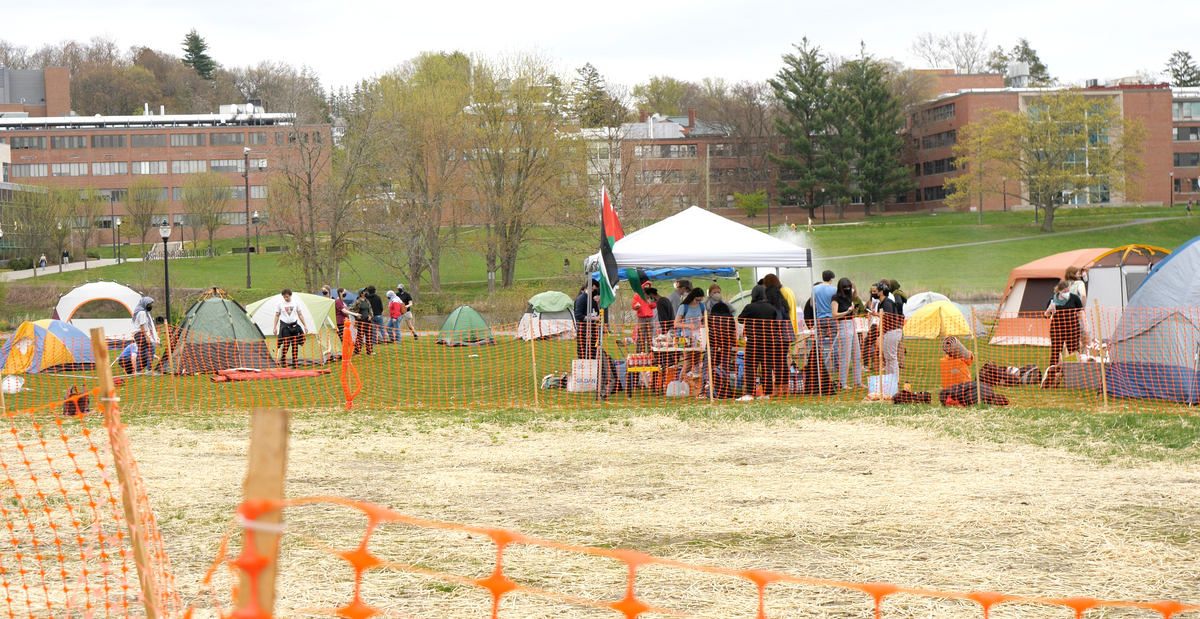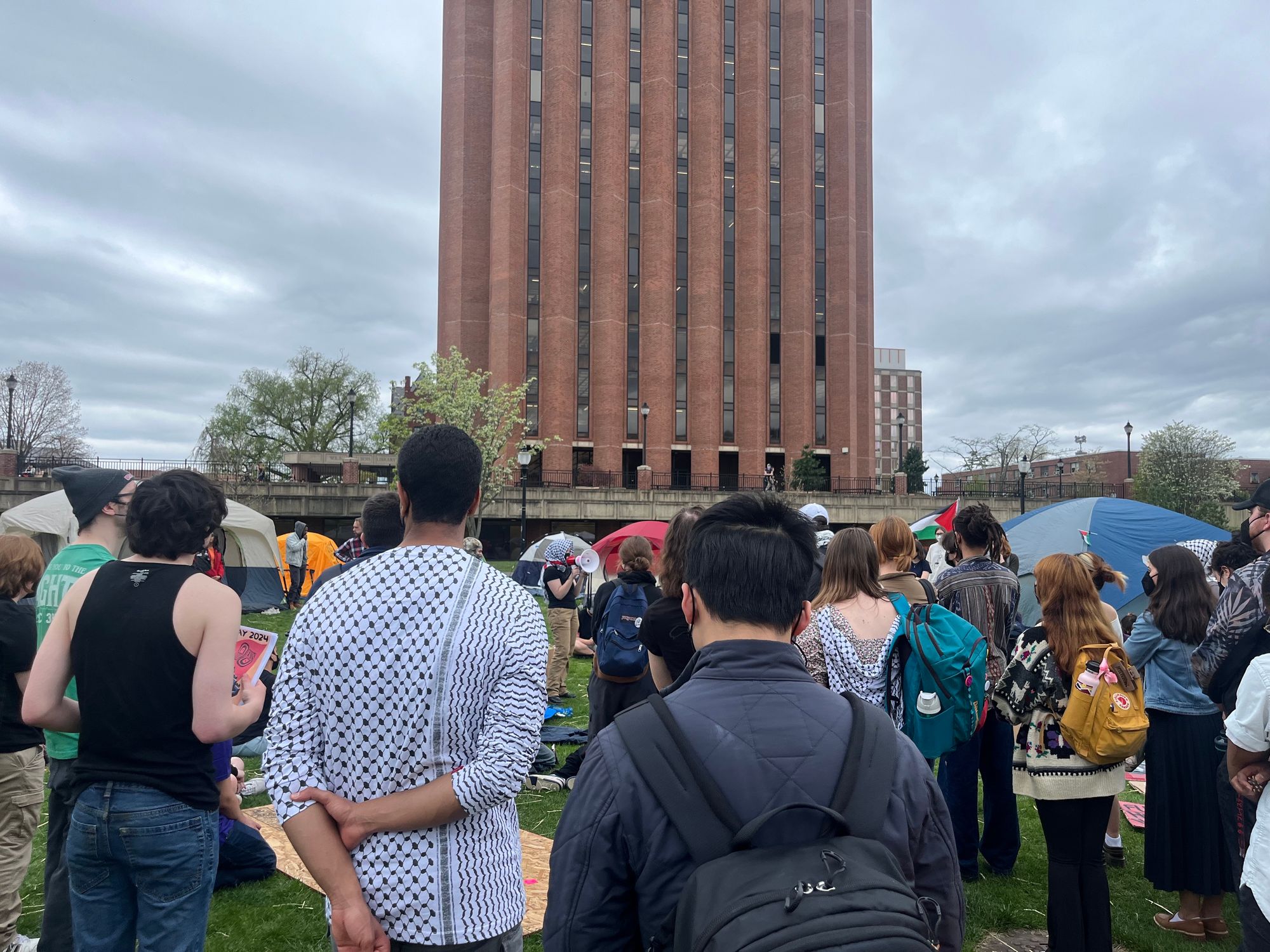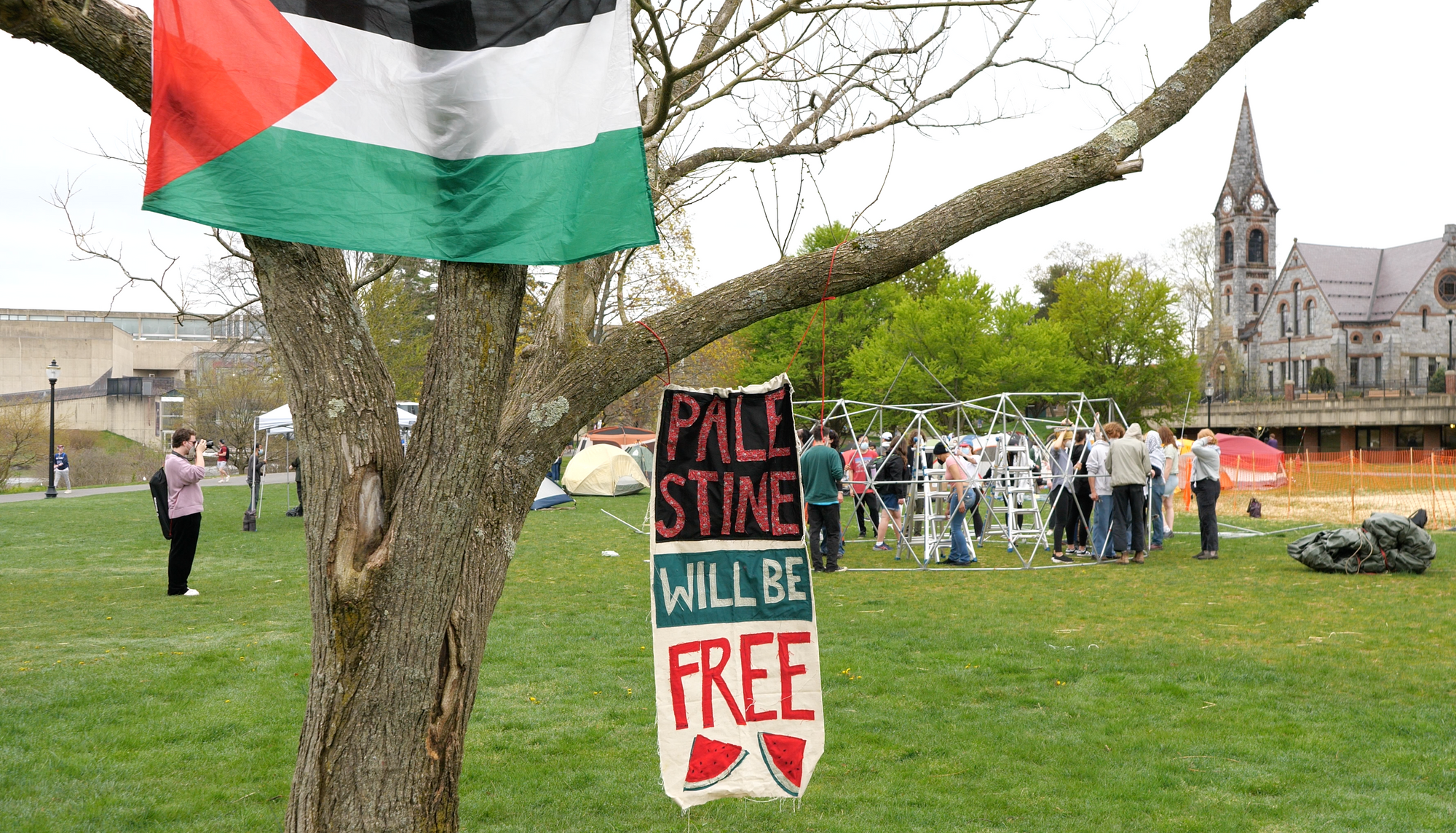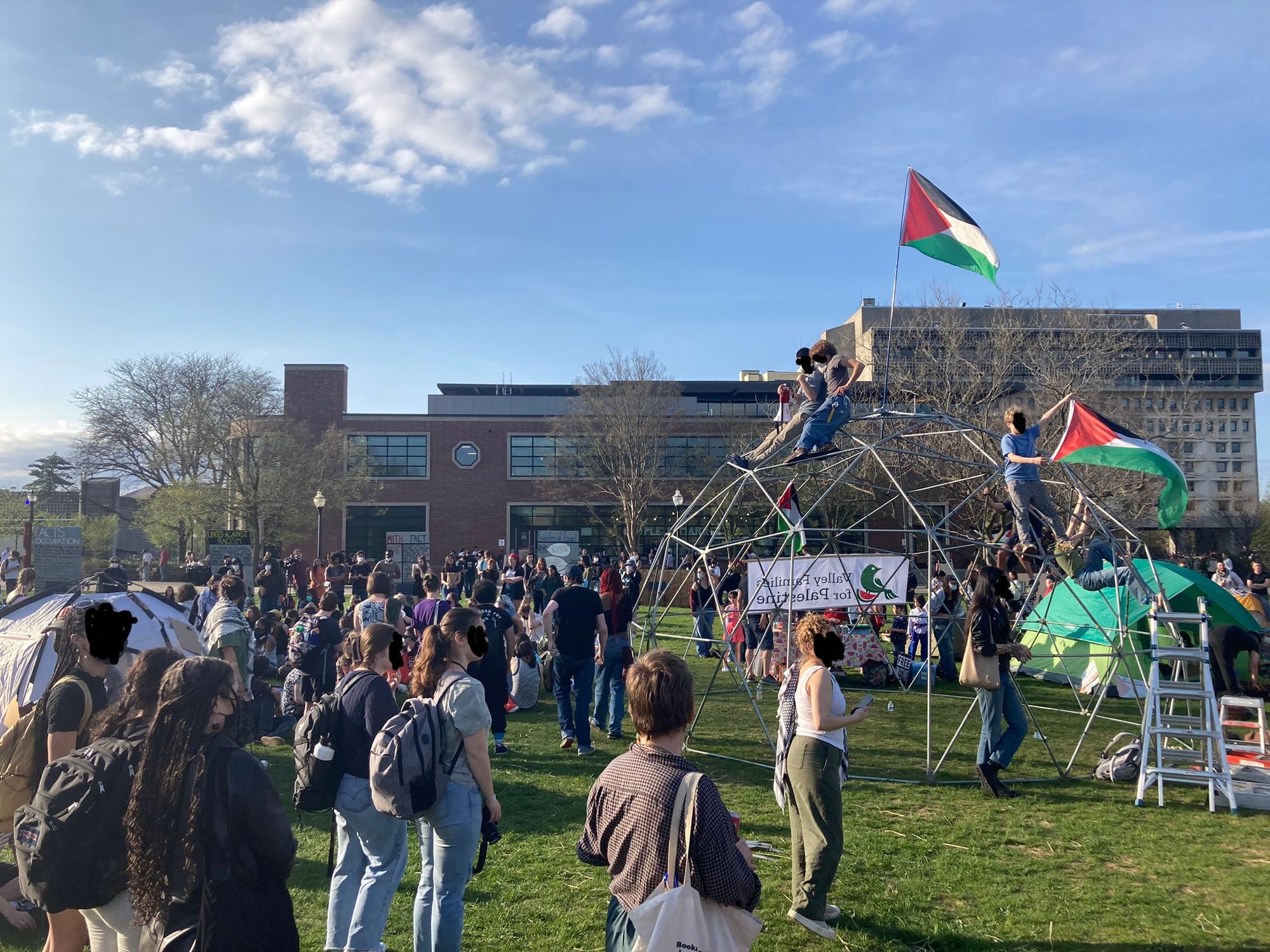UMass Encampment Joins Nationwide Student Protests
An encampment of roughly 40 tents and over 100 people was constructed on the UMass campus on Monday.

Around 100 student demonstrators affiliated with UMass Dissenters, Students for Justice in Palestine, and the UMass Amherst Young Communist League established an encampment on the lawn in front of the university’s student union on Monday.
The encampment of around 40 tents was dismantled Tuesday afternoon after increased police presence on campus and university dispersal warnings. A campus-wide email from Chancellor Javier Reyes further accused the demonstrators of violating the university’s land use policy by erecting tents, though he clarified that the protest itself did not violate university policy. Protestors are continuing to occupy the space and plan to hold a “people’s assembly” on Wednesday at 1 p.m.
The encampment was established after a coalition of UMass students, faculty, and alumni interrupted Reyes’ inauguration on Friday, demanding that the university cut its ties with the defense contractor and industrial corporation RTX (formerly known as Raytheon); drop charges against 57 students who were arrested during a protest last year; provide affordable housing for university students; and improve transparency regarding the university’s endowment.





Those demands were reiterated by the demonstrators on Monday at a table set up facing the Student Union. Additionally, students called for a democratized campus and demanded “cops off campus.”
Four painted signs with art and information about the protest welcomed passers-by, and representatives at the welcome table answered questions from interested students. Within the encampment, students hung out on the grass, painted signs to hang on tents, and introduced themselves to each other by camp names, adopted to protect them from university sanction.
An information tent at the center of the encampment supplied food and water, while a free library next to the tent stocked books relating to protest, community, and the history of Palestine. A few students playing music on hand drums in the center of the encampment added to the atmosphere of community in protest.





Comments ()